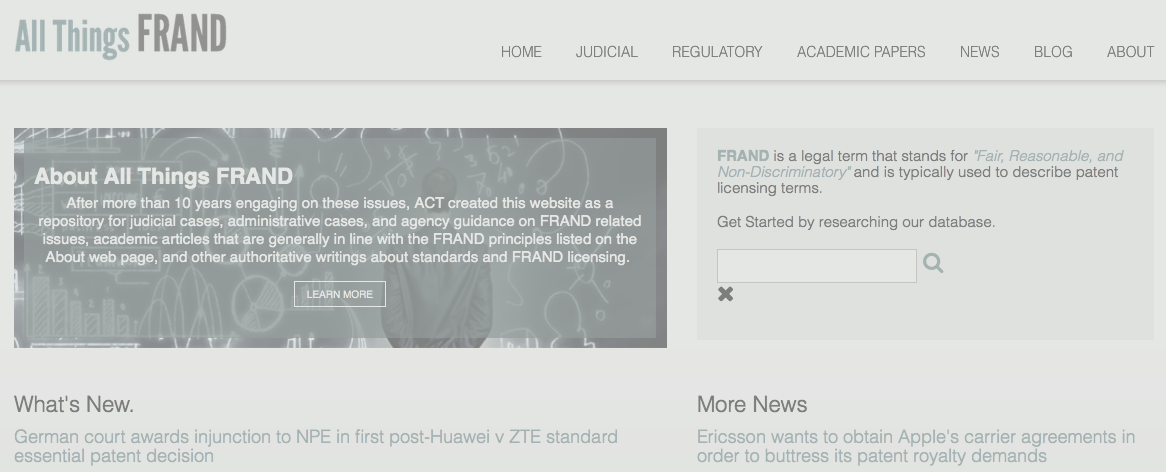The convergence of computing and mobile technologies continues to change our lives. A broad range of industries have come together to build the Internet of Things (IoT) – an ecosystem that stitches together our homes, cars, phones and watches, creating endless opportunities to improve our healthcare, safety, and lifestyles.
That seamless interconnectivity is possible because of technological standards including WiFi, 4G, and Bluetooth. These standards are developed collaboratively in Standards Setting Organizations (SSO’s) – fora where companies work to develop interoperable technologies together. A patented technology that is accepted into a standard and is critical to that standard is a “standards-essential patent,” or SEP.
Holders of SEPs are entitled to licensing fees from implementers of the standard. In return for the bargaining advantage a SEP holder has, SSOs require the holder to promise to license the SEP on terms that are fair, reasonable, and non-discriminatory (FRAND).
Increasingly, some companies that voluntarily contributed their patented technologies to these standards under FRAND terms are abusing their unique position and reneging on those promises with unreasonable licensing and litigation practices. These practices not only threaten competition and create imbalance in the patent system, they also impact the viability of new markets like the nascent IoT.
Alert to these concerns, ACT | The App Association today launched All Things FRAND, a resource for innovators, policymakers, and academics about standards and FRAND licensing. All Things FRAND will help make these complex issues more approachable while providing a clearinghouse for legal cases, agency guidance, and academic articles.
Patent policies implemented today will have a lasting impact on the way we work, live, and play for decades to come. The collective decisions by policymakers, courts and regulators around the world create the conditions that weave the fabric of innovation. By gaining insight to these issues now, we can make informed decisions and create a stronger fabric that encourages and rewards innovation.
